|
User
Reviews 5
Approval 97%
Soundoffs 61
Album Ratings 5437
Objectivity 88%
Last Active 09-06-22 1:37 pm
Joined 09-24-05
Review Comments 7,269
| FILM: tectac's Krzysztof Kieslowski, Ranked
One of the first foreign (i.e., non-English speaking) directors I fell in love with; his ability to blend texture and genuine human emotion creates metaphysical experiences like no other. Gone too early, it always makes me wonder what else he would've done if he were still here today. For the purposes of this list, I am considering each DEKALOG episode as a separate entity because [1] they have been screened separately as individual features, [2] they can operate as standalone films despite the thematic connectivity, and [3] they all meet the AFI/BFI requirement for feature length (40 min). I am not, however, considering Kieslowski's short films or early, political documentaries, of which I've only seen a few in very poor quality (and have been mostly unable to locate the rest). I'm also including A SHORT FILM ABOUT KILLING / LOVE in place of DEKALOG episodes FIVE / SIX (respectively) since they are, in essence, various cuts of the "same" film (despite the different ending of LOVE / SIX). Doesn't make sense to rank them separately. | | 22 | 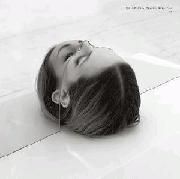 | The National
Trouble Will Find Me
>> PERSONNEL (1975)
Just not much dramatic or even aesthetic interest in Kieslowski's first non-documentary feature. The vérité style doesn't suit his best strengths as a visual director, and the narrative itself is so comparatively slight to almost everything hereafter that it's difficult to find reasons to ever come back to this. If nothing else, it shows significant progress from the early shorts I've seen, but they are such different beasts that it's almost hard to compare. Not "bad" by any means, but clearly the work of someone still trying to find their proper footing. (And he eventually did.) | | 21 | 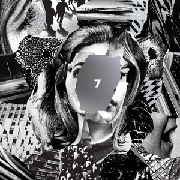 | Beach House
7
>> DEKALOG, SEVEN (1989)
My least favorite DEKALOG episode: Truth is, there's absolutely nothing wrong with it (except maybe the ending, which is emotionally silly and narratively pat), it just happens to be the most plainly written, assembled, and executed segment from a cumulatively masterful compilation of miniature features. The strained relationship of the mother/mother presents a very interesting dynamic, but it plays out more or less exactly like you might expect, which feels moderately rote for Kieslowski. Still plenty to stew over, though, but it's almost more fun to talk about than actually watch. | | 20 |  | Chelsea Wolfe
Abyss
>> BLIND CHANCE (1981)
Have always liked this film, especially the *idea* of it, though I think it needed to be about four hours long for it to be truly great. In its existing two-hour state, it doesn't have enough time to properly allot to each of Witek's three narrative branches for them to grow organically, and as a result, things feel a bit mechanical and rushed. (And Witek, in turn, looks like the most easily impressionable sap on the planet.) I've no problems with any of the throughlines and their destinations, but you can tell a lot of interstitial material was cut from the film to truncate the runtime to something more digestible, which is unfortunate. This would make for a nice, long, episodic "feature" á la Bergman's SCENES FROM A MARRIAGE. Good, but flawed. | | 19 | 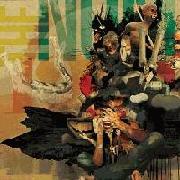 | The Number Twelve Looks Like You
Worse Than Alone
>> THE CALM (1976)
A significant step up from PERSONNEL just one year later, both formally and thematically; though Kieslowski is well known for incorporating political themes into his films, things here are almost a bit too bare-faced, and the result is something resembling didactic advocacy...not to say (anti-)propaganda, but close. Even still, Kieslowski's eye for minor, humanistic touches and oppressive landscapes does a lot of heavy lifting, and you can see how he's beginning to blend his political sensibilities with the human/emotional elements, which would truly come to fruition in some of his later work. | | 18 | 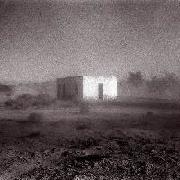 | Godspeed You! Black Emperor
'Allelujah! Don't Bend! Ascend!
>> DEKALOG, EIGHT (1989)
Used to be my least favorite DEKALOG episode, but a (somewhat) recent revisit greatly improved my thoughts and feelings on it (and yes, it's now merely second-to-last, but the entire DEKALOG is incredible, so what can I say). My biggest nitpick has always been (and still is) the excessive use of exposition through load-bearing dialogue. But what I previously missed were all of the super-humanistic touches Kieslowski plants throughout, e.g. Zofia’s slight facial tic when Elzbieta’s recounting her childhood story, the desolate nighttime wandering through the same apartment complex decades later, or the way Zofia’s teacups are all appropriately different. Love the tie-ins to DEKALOG, TWO and TEN, also. Contortionist in the park is one of the series's most ham-fisted moments, but there's enough beauty elsewhere to compensate. | | 17 | 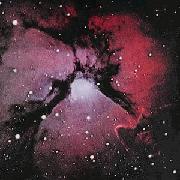 | King Crimson
Islands
>> SHORT WORKING DAY (1995)
Heavily political, as was much of Kieslowski's work, which is typically something I'm allergic to, but Kieslowski's approach here is both subversive and moderately thrilling: Rather than assume the vantage point of "the oppressed," he looks through the lens of "the oppressor." And while he's clearly on the side of the people (in real life), SHORT WORKING DAY doesn't posit The Party as wholly reprehensible, either, instead revealing their pressures and incentives as something of a presumed necessity, introducing a lot of moral conflict and genuine uncertainty among which side is genuinely "right" and "wrong." Every good essay on a specific topic should have at least one paragraph dedicated to a reflexive counter-argument, and here is Kieslowski's version of that among his canon. | | 16 | 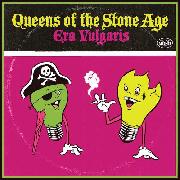 | Queens of the Stone Age
Era Vulgaris
>> THE SCAR (1976)
Could've been tighter; maybe 90 minutes instead of 100-something, given that much time is dedicated to very specific events among a political procedural that would've been fine with some truncation. I do like this film a lot, though, as Kieslowski creates a devil's advocate surrogate being pulled in either direction by his city's government and its fine people. To my mind, it accurately captures how even a man with wholly good intentions is capable of making decisions that might seem "bad" to several hundreds, thousands, or tens-of-thousands of people. A good argument that there are (almost) always two sides to every story. A lot of nice visual touches, too, like the collage of trees being cut down in the forest, or the split black-and-white shot of a man installing a light-bulb into his new apartment. | | 15 |  | Kate Bush
Hounds of Love
>> FIRST LOVE (1974)
Honestly not sure how much of this is real vs. fiction, which I find both frustrating and enticing; seems like nothing more than an emotional meat-grinder, which in many ways, it is, but it's also hard to ignore that this was essentially the state of Poland back in the mid-70s, and this wasn't too far removed from the way a pregnant teenager would've been treated by that era's society. There are hints of artificiality that always make me question my emotions, but this is devastating nonetheless, and as always, Kieslowski's ability to key in on minor idiosyncrasies of the human complexion was apparent even back in 1974. | | 14 |  | Bjork
Vulnicura
>> DEKALOG, ONE (1989)
This is a lot of people's favorite DEKALOG episode and I can see why: It embodies the conceit perfectly (in that it aligns perfectly with one of the ten commandments), it's full of morally complex reasoning, legitimate empathy, and ends on a truly gut-wrenching note. In my eyes, this is a great DEKALOG episode that gets a bit too on-the-nose with its parallels, though, and, in several instances, exercises its theses aloud too clearly. (Like, for example, when the boy randomly asks his dad about death after seeing a dead dog, and the conversation that follows...Just feels like inorganic precursor imo.) Performances are excellent, and the father's growing paranoia once he realizes that his boy might be gone is absolutely shredding. A great DEKALOG episode, just not The Greatest. | | 13 | 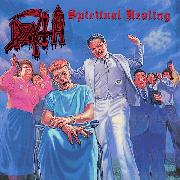 | Death
Spiritual Healing
>> NO END (1985)
A nice cocktail of politics and personal grief, almost like a dry-run for BLUE that entwines a subsidiary story about the oppression of communism in Poland. The way Kieslowski seamlessly weaves the various strands is impressive, though his embodiment of grief strikes me as far more arresting than his political lobbying. Though here, the slew of tactics used on the imprisoned man does an adequate job of summarizing the myriad of attitudes and anxious behaviors caused by the government during those times. One of my favorite openings to any Kieslowski film (the spectral speech is chilling) and easily one of his most bleak closing shots, too. | | 12 | 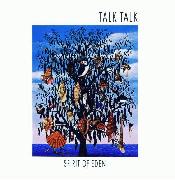 | Talk Talk
Spirit of Eden
>> DEKALOG, TWO
Another DEKALOG episode that's grown in my estimation over time and several revisits. The power of TWO is hidden in the details, and it gains momentum the more you think about the choices and the consequences at play. You’ve got a headstrong clash of The Cowardly and The Selfish (with a side order of The Unfaithful, of course) ; a woman too afraid to make what will likely be the biggest decision of her life—one way or the other—and essentially tries to unload her dilemma onto someone else through a pretense of guilt and undeserved responsibility, enforcing a sort of abortion-by-proxy. I mean, that’s some next-level cold-hearted shit. yeah, maybe TWO relies a bit too heavily on monotonous exchange and pure mechanism over pragmatism, but little touches like e.g. The Schrödinger’s “Progression” make up for a lot of that banality. | | 11 |  | The Beatles
The Beatles
>> THREE COLORS: WHITE (1994)
There's no one to "root" for in WHITE, and as time traverses, so grows the complexity of the characters. The plot gets a tad too thorny for its own good, swishing through a pretty remarkable series of unlikely events and asking us to play along; perhaps that's part of Kieslowski's humor, that we should believe a man would even make it that far stuffed into a suitcase, or that an ex-lover framed for a murder she didn't commit wouldn't attempt to plead her case (despite having a doctored passport). A lot of tiny moments really bring this one to life, though, like the playful shot of Karol and Mikolaj running around like children on the frozen pond, just minutes after a supreme second chance is granted. The recurring flashbacks to a shot of Karol's wedding day is about as inexplicably heartbreaking as things can get. | | 10 | 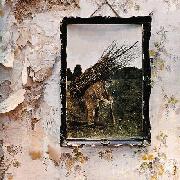 | Led Zeppelin
Led Zeppelin IV
>> DEKALOG, FOUR (1989)
As with most of these segments, the finest details are the ones that effortlessly get me into a stranglehold : the way Michał’s eyes quickly scan his daughter’s body after dousing her with water e.g. is a perfect execution of subtly introducing a strange, uneasy tension without arising unnecessary attention. It’s the head-on confrontations that leave me the coldest, here, à la Michał and Anka’s direct correspondence re: their predicament. There’s some thoroughly juicy stuff there, too—perhaps my favorite bit of rhetoric is when Anka asks her father: ”Who are you afraid of, me or yourself?”—but all of the thorny chit-chat in the world couldn’t amass the same amount of arresting anxiety as Anka revealing herself to her “father,” the slightly hesitancy in his reaction capable of causing full-blown panic attacks. Great, prickly stuff here, stifled just a bit by a meager finish. | | 9 | 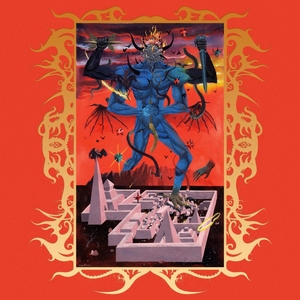 | Esoctrilihum
The Telluric Ashes of the Ö Vrth Immemorial Gods
>> THE DOUBLE LIFE OF VERONIQUE (1991)
I'll always hold a special place for this in my heart, as it was one of the first foreign films I fell in love with, one of the first films that showed me cinema as an "art" that could extend beyond comedic storylines and action-packed sequences. Revisiting this over the years has revealed that there's not much weight to the parallels between Weronika and Veronique (at least not far beyond the superficial delights), but I've subsequently come to love this somewhat inconsequential weightlessness. This, perhaps more than any other Kieslowski film, is visual poetry; there's a specific lyricism to the way he uses colors, faces, and framing (the shot of Weronika on the phone with three different colors splashes against her face always takes my breath away) to elicit feeling and emotion that, to my mind, no other director is equally capable of. What a lovely little film. | | 8 | 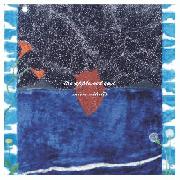 | The Appleseed Cast
Mare Vitalis
>> DEKALOG, TEN (1989)
Bold choice for Kieslowski to end his monumental masterwork on a subversively humorous note ("humor" being merely comparative in this case), but it was just what the series needed after nine preceding episodes of sheer emotional dourness. Even the conceit here is far-fetched and full of cheeky coincidences, but played with a such a straight-face that you can almost feel Kieslowski grinning behind the lens. The final shot of the brothers laughing, head-to-head, sums things up nicely. Favorite sequence is the splicing of a kidney surgery with a home invasion. Brilliant. | | 7 |  | Mineral
The Power of Failing
>> THREE COLORS: BLUE (1993)
Manages to capture a striking balance between muted and exorbitant, somehow both subdued *and* ostentatious; blue becomes a character in and of itself, an ominous beacon that keeps a dutiful watch over everything. Handles grief in a similar manner, realizing that everyone copes in their own way. Not sure if the revelation of Julie being the true mastermind behind her husband's famous compositions has a deeper meaning w.r.t. emotional entanglement, or if it's meant to be an encryption of her true feelings, but either way it doesn't seem fully satisfying (although there's a brilliant shot of Julie looking at pages of unfinished scoring, tracing along the notes as the music plays in her head, and continues to play even once the notes abruptly end). It's a film that 'paradoxically registers more deeply when approached from a completely superficial level. It's more about experiencing the emotional roller coaster than deciphering every last symbolic gesture. | | 6 |  | Two People
First Body
>> CAMERA BUFF (1979)
Most established auteurs have at least one film that functions as a love letter to cinema ; this is clearly Kieslowski’s, and what’s so fascinating about it is that it also presents a sort of contrast to abut the romanticism—one man’s obsession with “art” (or in this particular case, the art of filmmaking) effectively turns it into a mistress, resulting in a clash of interest at home as the jealous wife watches a video camera absorb her husband’s utmost attention, leaving her (and their newborn daughter) feeling third wheel. It’s an interesting insinuation that often gets tossed aside in lieu of pure joy when crafting these filmic odes. At the same time, however, he understands the power of cinema and the good things it's capable of: ”A person’s no longer alive, and yet she’s still here. It’s beautiful.” A sobering poesy to the wonderment of cinema, dusted of all the typical sugar coating and a great representation of one man's dilemma colored in shades of grey. | | 5 | 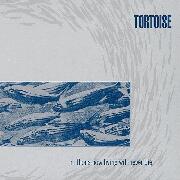 | Tortoise
Millions Now Living Will Never Die
>> DEKALOG, NINE (1989)
Wouldn't be surprised if this was at least partially Von Trier's inspiration for BREAKING THE WAVES. Kieslowski, as expected, takes a much less abrasive approach, stirring more between the internal conflict of one's own emotions than the interaction between parties. I submit that it’s fundamentally one of the simplest in terms of how the dramaturgy is manufactured, but said drama is so casually arresting that lack of complexity hardly registers. I imagine it’d be difficult to draw up the blueprints for an affair and still somehow elicit the notion that the married couple genuinely love and care about each other, but Kieslowski makes it look easy. This might be my pick for DEKALOG frontrunner in aestheticism, both visually and aurally. The elevator scene is obviously great, but the episode’s best display of mastery is the extended POV-shot as Roman spies from a closet, witnessing his wife’s tryst firsthand from behind the small crack of a door. Damn. | | 4 | 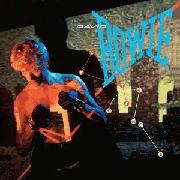 | David Bowie
Let's Dance
>> A SHORT FILM ABOUT LOVE / DEKALOG, SIX (1988)
I've previously likened this to REAR WINDOW, though now I see that’s a lazy comparison built on the very fundamental theme of voyeurism—this is infinitely richer, rooting itself not in a mere exercise of suspense or mystery, but a multifaceted portrayal of “love,” and how its very definition can shapeshift depending on context, emotion, experience, et al, coming dangerously close to overlapping boundaries with what we’d consider “obsession” or “sexuality.” The trickiest gambit here is balancing Tomek’s clearly contemptible behavior with his feeble personality, so rather than condemn him for essentially undergoing creepy/illegal acts of self-gratifying espionage, we end up pitying him, his frailty, his meekness, his ignorance. The role reversal that eventually takes place—a few moments too late, of course—is what continues to gut me, though. (On the record: I prefer the bleak ending of SIX to the shredding fantasy of LOVE.) | | 3 | 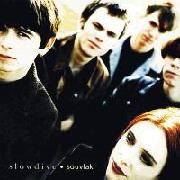 | Slowdive
Souvlaki
>> THREE COLORS: RED (1994)
So much density, yet it never gets cumbersome or weighty or pretentious or smarmy for all of the narrative knitting it attempts. It’s a film about unjustifiable coincidences and fortuitous events that are so elegant in their randomness that it’s hard to believe they’re random at all. Kieslowski’s pet-themes of metaphysical connections arise yet again, this time with a generation gap that separates the players, adding yet another layer of wisdom and hindsight to the mixture. Underlines the long-term effect of the tiny, small-scale decisions we (sometimes thoughtlessly) make, and it effortlessly straddles the line between Unavoidable Fate and Pure Consequence. And while the otherworldly readings are quite fun, I prefer to think of it has entirely secular i.e., Auguste vicariously reenacting his second chance through Joseph, partially through guidance, partially through coincidence. An absolutely riveting film in every sense of the word. | | 2 | 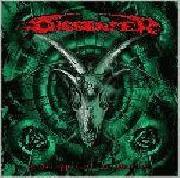 | Dissenter
Apocalypse of the Damned
>> A SHORT FILM ABOUT KILLING / DEKALOG, FIVE (1988)
So much mastery at work here that I'm willing to be lenient with its agency. (Its greatness should not hinge on your personal stance on capital punishment.) You could even posit everything here is a simple juxtaposition meant to be merely considered. There's an untouchable grimness to it, reflected in the drab yellow and green filter that engulfs everything except the occasionally recurring blotches of bright red. A darkness swallows the edges of the frame, barely opening to reveal the faces of the grimy world's characters, the obfuscation clearly proportionate to the severity of their intentions (note the heavy isolation when we're following Jacek compared to the relative "openness” during Piotr's preamble; the cab driver is somewhere in-between). Two murders: One done haphazardly and illegally in a taxicab, the other methodically and lawfully in a government prison, both uncomfortable to watch for a myriad of different reasons. | | 1 | 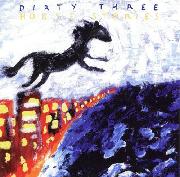 | Dirty Three
Horse Stories
>> DEKALOG, THREE (1989)
At some point, I developed an inexplicable soft spot for people who undergo laborious setups and uphold knowing artifice at great lengths as either a display of hopeless romanticism or a direct service to their own personal comfort. The latter is mostly true, here, but it’s stained with curdled remnants of the former. A forbidden love that soured and forked, one tendril flourishing outward as though nothing had ever happened, the other left to slowly wilt away, macerating in its own hopelessness. Ewa’s constant swerving between unhinged fervency and cosmic disaffection is nothing short of ravishing, especially when the shtick is revealed: The gruesome fanaticizing, vicious conscience-clearing, and fruitless arm-tugging becomes recontextualized under the pretense of her acceptance of death, and that’s pretty much the most heart-breaking thing ever. Highlights how nothing can mean everything to someone under the right conditions. My favorite Kieslowski piece. | |
tectactoe
08.19.19 | This one's for Rik. Let's talk about polish cinema, ladies and gents. | Sinternet
08.19.19 | do bela tarr | tectactoe
08.19.19 | I am missing two of his films, The Outsider and Family Nest. I will try to locate them and, assuming I can, do his list after watching them. (It bothers me when a list is incomplete.) | Rik VII
08.19.19 | Amazing list! Outdid yourself with the descriptions, and 22 of them at that.
My Dekalog ranking would probably be quite different, but that doesn't even mean much since they're all at least great anyway. Man, what a beautiful filmography. His work always feels insightful and poetic in an effortless way (as it should be). Not films by a person trying to prove their intelligence/uniqueness, but simply by an intelligent and unique person.
Red is in my top 10 favorite films (possibly top 5), all around one of the most beautiful films I've seen. The amazing tracking shots connecting the unrelated characters are certainly among the most straight-forward portrayals of the soul mate topic that he is so fond of, along with, obviously, Veronique (and Dekalog 8, after all its protagonists compare their situation to that of those in Dekalog 2). It basically melts into the topic of inexplicable coincidences, like the lawyer and the murderer sitting in the same café shortly before the murder in Short Film about Killing, or the end of Red. It's like these characters are connected by things beyond their understanding, and it adds a certain poetic air to the films, which generally tend to feel rather grounded and somber. I always found that synergy immensely fascinating.
Might comment on some of the individual films later. Camera Buff seems the most interesting of those I haven't seen yet, so that might be the one I tackle next. | tectactoe
08.19.19 | Thanks Rik. I agree with everything you said - Kieslowski's metaphysicality is unmatched, and the way he bakes little coincidences into his narrative never feels corny or cheap, rather a pure expression of the randomness of life and how certain paths with inevitably cross and ultimately raise the question of serendipity vs. chance.
I'd love to hear your thoughts on specific/individual entries. Aside from maybe PERSONNEL, there's not a single film here I don't enjoy to some degree. Most of them I love.
If you're a Kieslowski fan (which you obviously are) then there's almost no way you won't love CAMERA BUFF. | Zig
08.19.19 | Dekalog is beautiful. | Rik VII
08.19.19 | Dekalog is insane. How can one artist put out 10 hours worth of high quality film-making over the course of one year? That said, I think I prefer the trilogy as a whole by a bit, but I tend to view his stuff from No End on as part of one big series of films (as in: some of the Dekalog parts are closer to one of the trilogy films and vice versa, like White being reminiscent of Dekalog 10 in its black humor and quirky side characters, and even No End shares similarities with Dekalog 2 and Blue alike), so that distinction doesn't matter much to me. It's all one thing and it's one of the best things in cinema. Kieslowski-Piesiewicz-Preisner is easily one of the very best constant collaborations in film, no doubt about it. | J() Alexander
08.19.19 | Dekalog is his peak, yeah. It's so, so, so good. | tectactoe
08.19.19 | Yeah, if I were to consider DEKALOG as a single entity, it'd top the list. Even though certain episodes are weaker than others and they can each function independently, the "Bigger Picture" of all of them is just incredible. And I love the way they all take place in the same small apartment complex, and you occasionally see people from other episodes but it doesn't turn into some huge revealing plot element or anything, just a casual grace note to add to the intimacy and realism of the series.
I remember downloading DEKALOG years and years ago in pretty shitty quality but still being blown away by it, just the breadth of it all, how humanistic and affecting some of the segments were, and I almost lost my mind when Criterion announced they'd be restoring and releasing the series in their collection. Since I've gotten the Criterion release, I've probably watched the entire series an additional four times, and it just continues to get better, and my feelings constantly change on which ones I think are the best. (FIVE was the top for a while, then SIX, and now THREE.) | tectactoe
08.19.19 | I definitely think THREE is the most underrated episode. I always see it toward the bottom of "Dekalog Ranked" lists, and at one time even I had it in the bottom half (I think). But as I've gotten older, something about the conceit just chips away at my armor completely. It's almost like Kieslowski's version of BRIEF ENCOUNTER, only with a much more devastating ultimatum that ends on a similarly tender epilogue. (When the man gets back home to his wife and she utters "Ewa?" it absolutely kills me.)
Kieslowski is truly a god, one of my personal Top 10 directors without a doubt. | Rik VII
08.19.19 | Kieslowski is definitely in my top 5 I think, but don’t know exactly where since it constantly changes, but I'd currently put him at no. 3.
Don’t want to dive in too deep since I wouldn’t ever finish, so I’ll just pick out some of my Kieslowski opinions:
My favorite Dekalog parts are 2, 3, and 8 – don’t really know which one is my definite favorite, but 2 has had the biggest impact on me. I adored the interaction between the characters, and that scene with the bee almost drowning is burned into my brain, it’s such a beautiful, poetic yet simple way to illustrate the husband’s struggling. Agreed about Three being under-appreciated. Very emotional and I liked the atmosphere a lot, mostly due to the striking use of lighting (very unlike other Kieslowskis in that regard ... I guess that's because he prefers rainy days over night-time settings).
Not the biggest fan of Dekalog 1, personally, mostly because I find the ending to be unsatisfying. Like I mentioned before, I like his way of integrating stuff like that (a supposed divine punishment) into his films, but in this case, I don’t feel like there’s much to it, while it pretends to be what the film was getting at all along. Of course, it’s still great and, as you mentioned, really intense and grim. Just prefer the other ones.
And as much as I like it, I have a small gripe regarding Short Film About Killing, and that’s the convict’s conversation with the lawyer before his execution – I get that it’s an immensely important scene for the execution to have the intended impact, but I thought that the film was trying a tiny bit too hard to make me feel for him, if that makes sense … Bringing up childhood memories and stuff seemed a bit blatant. I wonder what the effect of removing a scene like that would have been, or even hiding all signs of humanity from the viewer until exactly before the execution. It would have been a different film, for sure. I guess what I’m getting at is that the film’s essential message – execution being governmental murder – is not dependent from the audience being put in a position to sympathize with the convicted, and it just interests me how that would come across without that element to it – not necessarily saying that it would be better that way. Anyway, I hold it in high regards – it’s one of the least typical Kieslowski films. Seems insane that this is the same director who did Red, or Short Film About Love, even. I also didn’t really notice the cinematographic details on perspective that you mentioned. Will look out for that when rewatching. | Rik VII
08.19.19 | Agreed about No End’s beginning being amazing. One of his best scenes, in my opinion. I think I’d place that one higher than you did, but I agree that the personal tragedy makes for a much better story than the political trial.
Now about the Color Trilogy, of course all of them are amazing. A bit of an unpopular opinion: I prefer White over Blue, mostly because of how amazing White’s supporting characters are (things like that add so much life to a film). Regarding Blue, her being the actual composer was actually a thing that I liked a lot. I thought that was one of the (few) things that really pointed towards the theme of liberty – the death of her husband being a tragey on the one hand, but a chance to claim her deserved recognition as well, so the film shows her finding liberty not only from grief but also from what was before the grief. My one major complaint with Blue: Her having and losing her daughter doesn’t have much relevance, other than increasing her pains to make some of her more irrational behavior more understandable. She’s barely ever mentioned again and I don’t think her inclusion added much to the film. But it’s important to remember that in most cases, every complaint I have is basically the one thing that wasn’t amazing.
Also, Veronique is a beautiful, beautiful film and probably my second favorite full-length Kieslowski. Of course it feels a bit patchy, but it nails so much. The music, the cinematography, everything this film does fits so well together, from moment to moment. A film that feels very “musical”, if that makes sense. | tectactoe
08.19.19 | Well said, Rik, and I agree with pretty much all of that. Also re ONE, it almost feels to me like Kieslowski dove in head-first with the "commandment paralleling" in mind, and loosened up thereafter, often even blending multiple commandments or moral conundrums in single episodes. I guess it's the one that feels the most "schematic" overall, and while I still love it, it also has what might be his most ham-fisted inclusion of imagery ever: The candle wax dripping on the painting of Black Madonna to mimic tears. (Looks great, but *thonk thonk*, Kieslowski is usually not so blunt.)
Also love the shot of the bee crawling out of the strawberry preserves. Must've taken Kieslowski forever to get this shot (I'd imagine), and the symbolism of perseverance in the face of the impossible is awesome. There's also an earlier shot I caught last time that signals a similar thing: the women (forget her name) bends the stalk of a plant backwards in frustration; Kieslowski lingers on the plant as she walks away, and it slowly begins to bend back upward to it's original position.
Agree with you, too, about the conversation in FIVE / KILLING. It's basically my one major nitpick, as I noted in my last review about it: "...[the film] is essentially perfect for 50 minutes, after which it gets a little too edifying for my tastes, the banter between Piotr and the judge feeling like a proverb preying on the audience's emotions rather than a genuine tête-à-tête, and the final stalling mechanism with Jacek coming off a bit clumsier than I'd remembered..."
I like your idea about the liberty with BLUE, though, and the emotional liberty gained through finally achieving deserved recognition. Hopefully I'll get around to revisiting the COLORS trilogy soon; it's been a while and writing up this list is giving me the itch to see them again.
I think the only part of VERONIQUE I didn't much care for was her relationship with the puppeteer, which always struck me as kind of flimsy, mostly re her instant infatuation with the guy. But it's only a minor complaint, as I think the film is really driven more by its sensory pleasures and visceral impact than any of its narrative strands. | Chortles
08.19.19 | I've been meaning to dive into Kieslowski's work for a while now -- where's the best place to start? I think I've been told Double Life / three colors before | Rik VII
08.19.19 | Probably Three Colors, in release order, starting with Blue. Double Life is pretty "out there" for his standards and not really indicative of his style. | tectactoe
08.19.19 | I started with DOUBLE LIFE - in fact it was one of my first introductions to non-English speaking films in general - and I can't say I regret it, though I think THREE COLORS would be an equally fine place to start (in order: BLUE, WHITE, then RED). Those four films amass Kieslowski's most digestible section of work, imo. After that, if you're feeling up for it, I would tackle DEKALOG. It's near hours total, but split neatly into ten segments that can function fine independently, so you can go at your own pace. It's a very bleak and dour affair overall, but one of the most important works in post-Hollywood-Era cinema imo, and an insanely rewarding experience. | Chortles
08.19.19 | Thanks fellas, will do | tectactoe
08.19.19 | Be sure to report back | J() Alexander
08.20.19 | Watched White again. Close to the the most boring film I've seen in my life that I remember watching. How the hell is that one in the same trilogy as Blue and Red? | GhandhiLion
08.20.19 | ^my thoughts exactly | tectactoe
08.20.19 | Funny, if anything I’ve heard people call BLUE boring, but never WHITE. (Though WHITE is almost always picked as the worst of the trio; Rik is one of the few exceptions.) They all work really well as a whole, though, imo (as they should), with WHITE kind of balancing out the macabre tone of BLUE, while RED is somewhere in between. | Winesburgohio
08.20.19 | i have no idea how he managed to film Dekalog but it is extraordinary, especially seven, the true thinking man's choice *winks heavily at camera* | Rik VII
08.20.19 | I really liked 7 while watching it, but over time, it has proven to be the least memorable Dekalog part for me. Definitely prefer it over 1 though, and mayyybe over 4.
I just noticed that I generally prefer the Kieslowski works that make characters meet and learn to know each other over those that introduce the viewer to an already established relationship (e.g. families). I guess he has a way to make characters open up to each other in a very believable (and often moving) way. | tectactoe
08.20.19 | Rik, do you prefer the ending in SIX or LOVE? I *like* both, but find the SIX ending far superior; I guess I'm a fan of ossified misery over uplifting fantasy (though both endings are "bleak," in their own way).
Also DEKALOG SIX >>> REAR WINDOW | Rik VII
08.20.19 | Honestly, I'm divided on that one. The original ending is simplistic but also satisfying. On the other hand, watching him being romanticized to that degree in the film version's ending, is kinda painful to watch, but also fits the film's theme better.
I feel D6/Love is kinda similar to White in that regard - both not really examining their alleged main topic but rather a distorted version of it, a misinterpretation, like White's main character using his right of equality as an excuse for his self-righteous egoism for most of the film. In this case, like you wrote above, it's less the main topic of love that's its focal point, but rather obsession, and I think the film ending captures it very well in how helplessly irrational it is. Definitely a bleak fantasy in my book. I like both endings, but don't love either.
D6 and Rear Window don't have many similarities. I feel the latter is mostly a reflection of the crime film fan's own voyeurism and fascination with murder. It also has beautiful camera work and a setting kinda reminiscent of a theatre stage, all increasing the unreal feel of it (like he's watching an entirely different world through the window, similar to the viewer who, in turn, watches through his own window, the screen). I generally prefer Rear Window (despite the awkward ending), but the reasons for that are things that D6 doesn't even attempt, while D6 obviously succeeds at things that Rear Window doesn't attempt, especially regarding characters. | tectactoe
08.20.19 | Re the REAR WINDOW comparison, I agree wholeheartedly, and was mainly just poking a stick at the first line of my LOVE/SIX write-up in the list lol. Hitch's mise en scene is untouchable, and obviously nothing in LOVE/SIX is meant to be particularly thrilling or "mysterious". But I think in both cases, at the very least, they portray facets of obsession through voyeurism, only fueled by drastically different motivations (lust v. insatiable curiosity).
| Rik VII
08.26.19 | Saw Camera Buff yesterday, pretty amazing film indeed! Beautiful camera work. The protagonist's general ignorance can be jarring at times, but that's not necessarily something that throws me off (hence my support for White). The cinema scene you alluded to in your description was great, all the more moving against the backdrop of Kieslowski himself dying far too early and yet living on in his own films.
I'd place it somewhere around No End and Short Film About Love in my own ranking - not one of my favorite Kieslowskis, but a very fulfilling and thought-provoking film, as I hoped (and expected) it to be. | tectactoe
08.26.19 | Awesome! I knew you'd like it. Definitely one of Kieslowski's more underrated works, imo. (Or, at least, under-seen.)
What's next? :o) | Rik VII
08.26.19 | It didn't catch my attention before you praised it on here, so that seems to be true!
The Calm seems interesting, so maybe that one, but I'll probably focus on other directors for now. Started getting into Kitano recently and it's been very interesting first impressions so far. | tectactoe
08.26.19 | Nice. That's not a bad idea. I really want to finish Hitchcock's filmography - there are about six films of his I haven't seen, but I'm having trouble finding copies that aren't of irritatingly poor quality. | Rik VII
12.19.19 | Not really on this site anymore, but wanted to stop by because of the Kieslowski rewatch I’m in since the winter days arrived. (It’s the perfect time for these.) Most of my opinions stayed the same. More than anything, that means that a good portion of the films wrecked me emotionally, the connections (stylistically, thematically, and “easter eggs” like character cameos) are as engaging as ever, and he remains a top 3 director for me. Simply stunning. How can one man create so many moving films in such a relatively short time span?
A Short Film About Killing grew a lot. I don’t know of any other film that looks or feels the way it does, and it’s just brilliantly put together. I also didn’t mind the change of approach to Jacek as a character as much this time around, mostly because of that early scene where he hands out that photograph, which I completely forgot about. It helps set up the fact that he’s not just a jerk. Although even with that, it still feels kinda sneaky and dishonest to show a person as a (kind of) complete monster and then pull out the “oh he’s had a hard youth” card as soon as he’s on trial AFTER the fact. But that scene definitely weakens that complaint a bit. I still think that the last dialogue before the execution is unnecessarily sentimental. It comes across as preachy, which is odd since the film seems to consciously avoid that in literally every other scene and proves time and time again that it doesn’t need that anyway. It’s amazing how just showing a death sentence being casually set up feels like an argument against death sentence in itself. Amazing. Why then that scene in that way? I consider it one of only two actual mistakes (not weaknesses, actual mistakes, things that were plain wrong decisions for what the film was going for) in Kieslowski’s later work, the other one being the daughter in Blue, who dies along with the husband in the opening scene but in contrast isn’t of any significance for anything in the film at all. That aside, Killing is an amazing film nonetheless. (Same for Blue, while I’m at it, both are among his most rewarding films as a whole, Blue in a somewhat cathartic way, Killing in a way that is nothing less than soul-crushing – couldn’t really say which one I prefer.)
Also, tec, I have actually watched an Ingmar Bergman film that I actively disliked (After the Rehearsal), and if all of his films (or most of them) were like that one, I would agree with everything you can't stand about him. | tectactoe
12.19.19 | Miss you, Rik. Always love a good Kieslowski marathon, though. Just recently reran DECALOGUE myself (about six or seven months ago, maybe?) and it's crazy how continuous engaging it remains, even after having seen it multiple times. Crazier yet, I always end up feeling different toward each of them after revisiting. It's been a while since I've done the Colors Trilogy - might have to queue those up over the holiday break.
Agree entirely on KILLING, esp. that last part. Both the long, stalling mechanism between Piotr and Jacek (which turns into both clunky exposition/backstory and unnecessary didacticism). From my last review of it: "...it's essentially perfect for about 50-minutes, after which it gets a little too edifying for my tastes..."
AFTER THE REHEARSAL is one of the nine Bergman films I've yet to see. Others being A SHIP BOUND FOR INDIA, THE DEVIL'S WANTON, THIS CAN'T HAPPEN HERE, SO CLOSE TO LIFE, STIMULANTIA, THE BLESSED ONES, IN THE PRESENCE OF A CLOWN, and..... get ready for it......... FANNY AND ALEXANDER. So basically eight lesser/mostly unknown/inconsequential Bergmans and then arguably one of his greatest contributions to cinema.
I would like to close out his canon one day, since I've seen so goddamn many of his movies at this point it would be worse to just call it quits to close to the finish line. But many of those eight films are difficult to find, and after thoroughly disliking SCENES FROM A MARRIAGE, I am in no rush to sit through another five-hour Bergman project.
One day....... | Rik VII
12.20.19 | I watched the trilogy on one evening, same for the two longer Dekalog films (that worked really well, surprisingly - SFAL is the right kind of soothing after SFAK). The other stuff seperately. It's only the Kiewloski-Preisner-Piesiwicz films for now though, so only No End onward. And as I go along, I try to catch as many of the connections/similarities/recurring motives as I can just for the fun of it.
Regarding Bergman, you're not alone, unbelievable as it is - I haven't watched Fanny and Alexander either, but the reasons are very different .. I just haven't found a way to get my hands on a good, European, English subtitled release with the 5 hour version yet, and watching the theatrical cut is out of question. There's some huge Bergman collections that include it, but I have a lot of them anyway, so I rather just wait a little further. One day.. [2].
That said, there's also some scripts late in his career that were adapted by other directors which I also plan to watch someday, but some of those are insanely hard to come by. There's another 5 hour tv production with a 3 hour theatrical cut among them, The Best Intentions.
Which reminds me, some scirpts by Kieslowski/Piesiwicz were also adapted (posthumously). I haven't seen any of those, but at least some of them seem easier to find. I will make them a priority once I'm done with all the films he directed .. | tectactoe
12.20.19 | Is the Criterion Channel available where you are? It's a bit pricey at about $90/year (compared to other streaming apps) but the amount of content they have that's either incredibly difficult or near impossible to find elsewhere is amazing. Cinephile's dream, honestly, and I know for a fact they have the episodic version of FANNY AND ALEXANDER on there (same for SCENES FROM A MARRIAGE, because that's precisely how I saw it - only it was a few years ago and the app was called 'Filmstruck' before they collapsed and got re-branded as 'The Criterion Channel').
They have a constantly rotating stock, too - new films each month, many of them with special features and interviews and all that good stuff. Worth checking out of you watch movies often enough. | Rik VII
12.20.19 | Not avaiable in Germany (yet, hopefully) last time I checked, but it would indeed solve a lot of problems. One can only hope. (That said, I haven't been watching a lot of films lately anyway, the Kieslowski rewatches aside.) But yeah, I'd sign in as soon as it's avaiable. | Chortles
04.23.20 | took forever to actually do it, but I took the plunge into Kieslowski's work and it definitely feels like I'm finding a new favorite. I've only watched Double Life and Three Colors so far but loved them all.
Now planning on going through everything of his that's on Criterion Channel. Would it be ill advised to watch A Short Film About Killing / Love before their respective Dekalog segments? I'd love to go through all of Dekalog (and definitely have the time now) but it's not streaming on the channel currently :( (but the "short film" versions are) | tectactoe
04.24.20 | The DEKALOG episodes are "connected" in the same way that THE THREE COLORS films are connected - they are all entwined with similar thematicism (or at least *continuous* thematicism) and share small congruities that give them a collective sense of place and time, but ultimately you can view pretty much any of them out of context and it will function just find as a standalone film. The "Short Film" versions of Love and Killing even more so, since they have some additional material from the DEKALOG counterparts. (Short answer: I'd say yes, watch them while you can, but be sure to go back and watch DEKALOG in its entirety when you're able.)
Longer aside: In the case of KILLING, the "Short Film" version is pretty much the same as its shorter DEKALOG V counterpart, only it contains some additional details that enrich a few characters in the story more. However, the "Short Film" version of LOVE actually has a drastically different ending than the DEKALOG VI counterpart, despite the two films being more or less the same for a while. So definitely don't skip the DEKALOG VI episode if you watch LOVE now and go back to watch DEKALOG later on!! | Chortles
04.24.20 | thanks for the tip!! always overly paranoid when it comes to viewing anything in the wrong order. but will do, and I'll definitely go back to Dekalog in full once either it comes to the channel or I cave and cough up for the boxset. | tectactoe
04.24.20 | FWIW, twice a year, Barnes & Noble Bookstores (most of which see Criterion Blu-Rays) have a sale 50% off all Criterion films, usually one month at a time. If you have one near you, it's a good deal, and if you're a member of B&N, you get an additional 10% off on top of that.
Otherwise, Criterion has two "flash" sales per year wherein they sell everything at 50% off also, though those only last a day each.
I think the MSRP of Dekalog blu-ray is $100 - picking it up for $50 it totally worth it imo. It comes with a nice Booklet and also includes the "Short Film" versions of five and six. |
|
